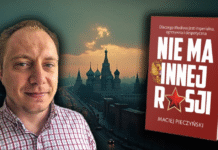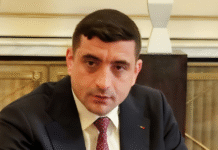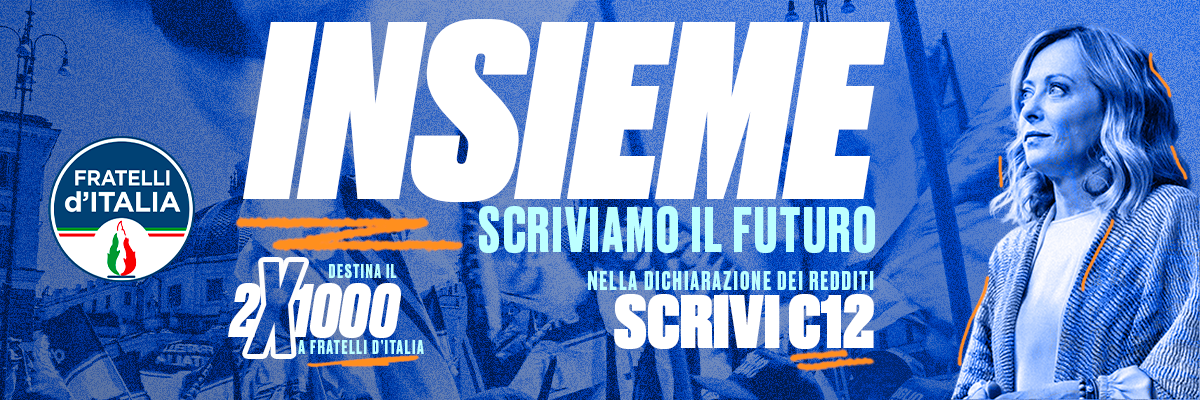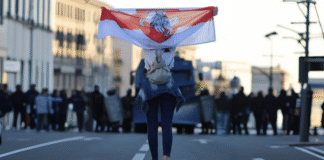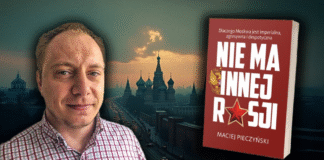In Warsaw, during the inauguration of Poland’s President Karol Nawrocki (August 5-7, 2025), a major event took place that marked a turning point in European political discourse. Under the MEGA (Make Europe Great Again) conference series, this gathering brought together representatives from 23 countries, from Belgium to Venezuela, from South Korea to Bolivia, in a demonstration of conservative solidarity that transcends continental boundaries.
The Warsaw event placed at the center of debates the most heated controversy of the moment in the European Union: the European Commission’s attempts, under Ursula von der Leyen’s leadership, to transform the EU into a federation through hidden means. European conservatives, with Poles at the forefront, firmly oppose this direction, invoking a fundamental principle: subsidiarity.
The principle of subsidiarity, the cornerstone of conservative political organization, stipulates that decisions must be made at the closest possible level to citizens. In other words, what can be resolved at the local level should not be transferred to the national level, and what can be managed at the national level should not be ceded to the European level. This principle protects not only administrative efficiency but also the democratic legitimacy of decisions.
A deep understanding of this concept reveals why forced federalisation is so dangerous. When decisions are made at a level too high and too distant from citizens, not only democratic control is lost, but also the cultural and social specificity that makes a policy effective in a particular context. For example, educational policies that work in Germany cannot be mechanically applied in Romania or Greece, because each nation has its own pedagogical traditions, social structures, and specific needs.
Europeans have observed with concern how the European Commission tries to circumvent the will of peoples through indirect tactics: creating a common army without consulting citizens, using the judicial system to impose controversial policies, and replacing directives (which leave freedom of implementation to member states) with rigid regulations that apply uniformly. All this happens without any European citizen being asked through referendum whether they want a European federation.
The mechanism is subtle but efficient and has devastating effects. Through the EU Court of Justice, the Commission manages to impose extensive interpretations of treaties, transforming national competencies into European competencies through legal precedent. By creating European agencies with increasingly broad attributions, a federal administration is built without officially modifying the treaties. By conditioning European funds on compliance with “European values” interpreted by Brussels, financial blackmail is exercised on member states that dare to contest this drift.
Polish legal think tank Ordo Iuris – Institute for Legal Culture responded by developing a comprehensive study titled “THE GREAT RESET: RESTORING MEMBER STATE SOVEREIGNTY IN THE EUROPEAN UNION”, which proposes two distinct scenarios for EU reform, materialized in fundamental proposals aimed at bringing the Union back to its original model. This legislative initiative represents the most comprehensive attempt to reform European architecture from a conservative perspective.
Ordo Iuris has identified three major problems of the current EU: erosion of national sovereignty through the EU’s evolution toward a quasi-federal state that limits national decision-making power, centralization of power through the expansion of EU institutions’ authority beyond their original mandate, and expansion of ideology and bureaucratization through the imposition of ideologically motivated policies on member states without any democratic mandate.
The first scenario – “Back to the Roots” proposes a profound reform of the current EU through 11 concrete proposals. The emphasis falls on decentralisation and national interests. The objective is to restore sovereignty while maintaining structured cooperation, ensuring that national governments retain control over key policy areas.
Among the key reforms in this scenario are:
- Flexibility based on national interests (the “à la carte” model of integration) with an opt-out clause allowing member states to exempt themselves from policies that conflict with their priorities
- Member states as the center of gravity ensuring that national sovereignty remains the foundation of the EU
- The European Council as the political core of the Union, above all other institutions
- Reducing the legislative weight of the European Parliament and modifying its composition to include national delegations
- Limiting the primacy of EU law only to EU competencies and ensuring it will never override national constitutions
- Extending unanimity in decision-making to protect national sovereignty
- Reforming the European Commission into a more technical General Secretariat, eliminating its monopoly on infringements and legislative initiatives
- Restructuring the Court of Justice to limit its authority over national legal systems
- Establishing a “National Competence Shield” in the TEU, protecting a list of competencies from EU interference
- Proper application of the Principle of Subsidiarity allowing member states to reclaim competencies if the EU fails to act within its mandates
- Renaming the EU to the European Community of Nations (ECN) to reflect a union of sovereign states, rather than a supranational entity
- The second scenario – “A New Beginning” proposes a complete institutional restructuring, replacing the current EU framework with a flexible, intergovernmental system that allows states to determine the extent and nature of their cooperation.
- Central elements of this scenario include:
- Intergovernmental Union – Primacy of intergovernmental bodies, with decision-making based on unanimity and an Executive Secretariat overseeing implementation. A European Court of Arbitration would resolve disputes between member states.
- Voluntariness and Flexibility – Introduction of an “à la carte” model of integration, allowing member states to participate in core areas of cooperation and opt-in/out of additional projects like border protection, energy security, and scientific research.
- Conferral and Subsidiarity – Strengthening the principle of conferral, ensuring clear distinctions between EU and member state competencies, with guarantees for subsidiarity and opt-out options from deeper cooperation.
- Primacy of National Constitutions – Upholding national sovereignty by prioritising national constitutions over EU obligations, allowing adjustments based on domestic legal frameworks while ensuring cooperation within agreed limits.
- Transition to a New Union – A gradual transition plan to dissolve the EU and establish a new Union based on the described principles, including addressing assets, liabilities, and financing during the transition period.
Both scenarios oppose fundamental principles: national sovereignty against EU primacy, national constitutions over judicial activism, representative democracy over technocratic governance, subsidiarity and respect for national competencies over centralisation, national interests over self-proclaimed EU values, and freedom of expression over ideological control.
The danger of forced federalisation is not only about legal or administrative aspects. It attacks the very democratic legitimacy of European construction. Member states did not join the EU to become components of a federation, but for economic cooperation and mutual benefits. Transforming this union into a federal superstructure without the explicit consent of peoples represents a confiscation of national sovereignty through subterfuge.
Historical experience teaches us that durable federations are formed through the explicit will of constituent peoples, who share the same national identity, not through administrative deception. The United States, Germany, etc. – all were created through transparent constitutional processes in which citizens were informed and consulted about the nature of the new political construction, but primarily there existed human cohesion of culture, language, traditions, etc. What is happening in the EU is exactly the opposite: a hidden federalisation, through bureaucratic accumulation of competencies, without explicit democratic mandate.
If the Commission persists in this direction, discussions about withdrawal from the EU and its reconstruction on initial foundations – those of balanced economic cooperation – gain increasingly more traction in European capitals. It is a subject that “simmers on member states’ agenda,” as noted in Warsaw, with one notable exception: Romania, where these crucial debates seem not to penetrate public space, except for the conservative-sovereignist party AUR, the Alliance for the Union of Romanians.
This Romanian silence is not accidental. It reflects the complete capture of political and media elites by the federalist project, which guarantees them privileged access to resources and positions in the new European hierarchy. For these elites, federalisation means promotion in the continental power hierarchy, while for ordinary citizens it means losing any control over their own political destiny.
The Republic captured by criminal organisations: the caste
One of the themes debated at the event was the metamorphosis of far-left parties into what some participants called “criminal organisations” that use the state apparatus to promote their own financial interests.
The concept of “caste” was central to these discussions, although not named as such, but directly “criminal organization.” Unlike traditional castes, based on birth or tradition, the modern caste forms around institutional control and financial flows. It does not proclaim itself openly but operates through discrete networks of influence, using the language of democracy and transparency to mask its true objectives.
This modern caste or discrete oligarchy is not based on classical ownership of means of production but on control of information flows, regulatory mechanisms, and distribution of public resources. Its members are not necessarily the richest people in society but those who control decision points in the socio-economic system. For example, a prosecutor with a modest salary but with the power to open or close cases can be infinitely more influential than a businessman with millions in account. But someone also made that prosecutor influential for protecting their own financial interests.
The functioning mechanism of this caste is fascinating through its refinement. Instead of directly confiscating private property, it creates a labyrinth of regulations, authorisations, and controls that make functioning impossible without its complicity. The entrepreneur is not directly expropriated but is forced to share profits with the bureaucratic network that can hinder or facilitate their activity. The independent journalist is not censored through direct prohibition but through cutting public advertising funds and marginalisation from distribution networks controlled by the caste.
This discrete oligarchy functions by capturing key institutions – justice, media, education, administration – and transforming them into instruments for perpetuating its own domination. Law thus becomes not an instrument of justice but a weapon in service of the caste, used to eliminate political adversaries and protect its own financial interests.
The phenomenon is not specific to Romania but is found throughout Europe, hence the interest of international participants in the mechanisms by which these oligarchic structures capture and undermine democracy.
What unifies these apparently different phenomena is the use of moral rhetoric and legal instruments to promote group interests presented as being those of the entire society. The modern caste never says it acts for its own benefit but always for “democracy,” “transparency,” “human rights,” “the fight against corruption,” or other concepts that sound noble but hide the true agenda.
Conservatism: the movement coming from bottom to top
Perhaps the most profound reflection of the event was the redefinition of conservatism not as a new ideology but as a return to what is natural and organic in society’s organization. After decades of radical social experiments, conservatism appears not as a revolution but as a recovery of lost balance.
This perspective explains why conservatism does not need to “fight” for promoting its values – they are natural and impose themselves when not artificially suppressed. Only deviation from normal needs force to impose and maintain itself. Conservatism is not an ideology in the classic sense of the term because its power comes from bottom to top, from people to leadership, not vice versa.
In Warsaw, extensive discussion took place about this fundamental difference between conservatism and revolutionary ideologies. Marxism, radical liberalism, extreme feminism, all presuppose that existing reality is fundamentally defective and must be changed through systematic intervention by an enlightened „elite”. Conservatism, on the contrary, starts from the premise that the natural social order, which developed organically over millennia, contains accumulated wisdom that exceeds any elite’s capacity to reconceptualise it.
This does not mean that conservatism rejects any change. On the contrary, it understands that change is inevitable and necessary but advocates for organic change, one that respects continuity and is based on accumulated experience. It is the difference between Evolution and Revolution, between natural Adaptation and forced Mutation.
This dynamic also explains conservatism’s relationship with progress. Conservatism does not mean stagnation but progress within the limits of social acceptance, a natural rhythm of change that respects continuity and stability. It is organic progress, which does not violate the social fabric, unlike radical progressivism that imposes abrupt and artificial changes.
Therefore, conservatism cannot be defeated through purely rational arguments because it is not based on abstract-philosophical theory but on the lived experience of human communities. When a conservative defends private property, he does not quote Locke or Smith but remembers the concrete experience of his grandfather who built his house with his own hands. When defending religious traditions, he does not make a theological demonstration but thinks of the soul peace they brought him in life’s difficult moments.
This rooting in concrete experience makes conservatism both more resistant to intellectual attacks and more vulnerable to rapid changes in social environment, but its values remain deeply valid for fundamental human nature.
The orwellian experiment in the Carpathians: when national security replaces democracy
The presence of representatives from 23 countries in Warsaw was not accidental. Delegates from Belgium, Bolivia, Czech Republic, Cyprus, Croatia, Ecuador, Estonia, France, Greece, Guatemala, Ireland, Italy, United Kingdom, Mexico, Norway, Netherlands, Paraguay, Romania, Slovenia, Spain, South Korea, United States of America, and Venezuela came to understand and learn from the Romanian case – a shocking lesson about how fragile democratic institutions can be when captured by oligarchic interests.
The annulment of Romanian presidential elections while in progress represented an unprecedented moment in democratic history. For the first time, an EU and NATO member country completely canceled an electoral process for reasons unrelated to proven fraud or serious procedural irregularities but to the “unexpected” result of the popular vote.
The mechanism by which this confiscation of democracy was achieved was the subject of discussions in Warsaw. First, a media campaign was created to demonise the uncomfortable candidate, based on speculation and tendentious interpretations. Then vaguely defined “threats to national security” were invoked, which could not be publicly contested without being accused of treason. Finally, state institutions were mobilized in a coordinated effort to cancel elections, each justifying its action through the others’ decisions.
What shocked the world was not only the fact itself but the ease with which it was accomplished and the absence of greater resistance from civil society. Romania demonstrated that an apparently consolidated democracy can be demolished in a few days if elites are united in this objective and if the population is sufficiently passive or misinformed.
The techniques used in the Romanian case could be catalogued as a “manual for undermining democracy” that can be applied in any country with weak institutions and a corrupt political class. Therefore, representatives present in Warsaw were trying to understand the mechanisms by which their own democratic systems could be protected from a similar scenario.
Delegates were interested in the role of social networks and algorithms in manipulating public opinion, the legal mechanisms by which a political decision can be masked under the appearance of a technical national security decision, etc.
The Romanian case became a case study on how easily the people’s will can be confiscated in the name of “democracy” and “national security.” It demonstrates that the main threat to democracy does not come from outside, from hostile regimes, but from inside, from elites who think they know better than the people what is in their interest.
The most painful lesson was that all institutions we consider guarantors of democracy – justice, secret services, mass media, political parties – can at any moment be mobilised against democracy if they are controlled by the same networks of interests. In Romania, all of these functioned in perfect synchronisation to prevent an electoral result that did not suit the dominant caste.
True democracy presupposes respecting the people’s will, whatever it may be, as long as it expresses itself through legitimate channels. The moment political elites decide that certain electoral results are “unacceptable” and must be annulled, democracy ceases to exist, regardless of the justifications invoked.
The Romanian paradox consists in the fact that the annulment of elections was justified through defending democracy against “anti-democratic influences.” This Orwellian inversion of meanings – in which destroying democracy becomes defending democracy – was identified as one of the main techniques of modern oligarchies for legitimising their own domination. Neo-Bolshevik techniques.
The same techniques, without annulling elections, were also applied during systematic disinformation during the presidential campaign in which George Simion was not supposed to win for the European federalisation project to continue. Poland, on the other hand, was more resilient in this case, which is why conservative candidate Karol Nawrocki won the elections.
All delegations with whom discussions were held understood that the Romanian experience is not an isolated case but a method that can be applied anywhere where democratic institutions are sufficiently weak or captured to allow such a manoeuvre.
The MEGA call: unity is strength – freedom first
The MEGA event in Warsaw marked a moment of crystallisation of the conservative movement. Between forced federalisation promoted by Brussels and the capture of democratic institutions by modern oligarchies, conservatives have identified threats and begun to articulate coherent responses.
The principle of subsidiarity, rejection of the modern caste, and return to natural values of social organization are not radical proposals but a return to the foundations on which civilisation was built. In this context, conservatism is not an opposition ideology but a rediscovery of balance and normality.
What crystallised in Warsaw is the awareness that Europe is at a decisive moment. The current direction, toward forced federalisation and institutional capture, is not irreversible, but the window of opportunity for changing course is closing rapidly. Every day of silence and passivity consolidates the positions of oligarchies that have captured European and national institutions.
European conservatives realised they can no longer limit themselves to sporadic protests or marginal criticisms. A comprehensive strategy is needed that includes reforming European treaties, reconstructing educational systems captured by progressive ideologies, and especially awakening European peoples to the reality of confiscating their democracy.
The Romanian experience demonstrated that modern oligarchies do not stop before any red lines when their interests are threatened. They are willing to destroy democracy to “save” it, to cancel elections to “protect” the electoral process, to censor to “combat disinformation.” This Orwellian inversion of meanings is their main weapon, and the only way to counter it is systematic exposure of contradictions between discourse and reality.
The Romanian case remains a black stain on European democracy but also a precious lesson for all who believe that freedom and democracy are guaranteed once and for all. They must be permanently defended, and citizen vigilance is the price we must pay to keep them.
The Warsaw event demonstrated that this vigilance is beginning to manifest. European conservatives no longer passively accept Brussels’ authoritarian drift. Europe is at a crossroads. The path of forced federalisation leads to dissolution of nations and captivity in technocratic offices in Brussels. The conservative path leads to a Europe of free nations, united through common interests but preserving their identity and sovereignty.
The choice belongs to European peoples – if they will be allowed to choose. The Romanian experience showed that this permission cannot be considered guaranteed. Therefore, European conservatives assumed the mission of protecting not only traditional values but the very right of peoples to choose their destiny.
The strategy that emerged from Warsaw discussions is not limited to passive resistance or protest. It includes building concrete alternatives to the current system.
In this way, this direct communication corridor between conservative movements from different European countries and beyond was also built. Modern oligarchies benefit from coordination at European level through EU institutions, Soros-funded NGO networks, and other supranational structures. Conservatives have not had equivalent networks until now, which made them vulnerable to coordinated attacks.
MEGA events represent the first step in building this conservative network.
This perspective marks a fundamental change in conservative thinking. If until now each national movement focused on internal problems, now there is awareness that the struggle is not only European but international and that it cannot be won through isolated efforts. European federalists have had this coordination for decades; European conservatives are only now beginning to build it.
Modern Europe was built on the ruins of a Europe destroyed by totalitarian ideologies of the last century. Now, a new totalitarian ideology – radical progressivism allied with globalist technocracy – threatens to destroy what has been rebuilt. European conservatives assumed the responsibility of preventing this new destruction and preserving for future generations a Europe where nations remain free, families remain intact, human dignity is respected, and peoples retain the right to choose their destiny.
The success of this mission does not depend only on political strategies or financial resources but on conservatives’ capacity to remain faithful to their own principles in the face of power temptations and to maintain connection with their movement’s roots. The experience of the last century teaches us that when conservatives become in turn a closed elite, they lose precisely what made them strong: legitimacy that comes from representing peoples’ authentic aspirations.
The MEGA event in Warsaw was not just a political conference but a founding moment for the new conservative resistance. History will judge whether this resistance will succeed in stopping Europe’s authoritarian drift or whether it will remain just a romantic parenthesis in an evolution that seems inevitable. What is certain is that the struggle for freedom and human dignity will continue, regardless of obstacles, because these are values that belong to human nature itself and cannot be definitively eradicated through any social engineering.
At the same time, we realised that Romania is in artificial informational isolation, where crucial debates for the European future are systematically censored or ignored by mainstream media.
This reality underlines once again the necessity of an independent conservative media network, capable of informing citizens about the true stakes of the historical moment Europe is going through. Without such a network, European peoples will continue to be kept in ignorance about their own destiny, while oligarchic elites will make crucial decisions in their name but against their fundamental interests.
MEGA Poland demonstrated however that this conservative mobilisation is not only a European-level movement. Although Europe faces specific challenges – such as forced EU federalisation – this is part of an international movement, where the globalist left has seized power in numerous countries and institutions, and conservative forces unite to stop this authoritarian drift, of a globalist caste trying to confiscate democracy and impose a uniformizing agenda that destroys cultural and national diversity.
In this global struggle for freedom and sovereignty, the MEGA event in Warsaw marked the beginning of a new era of international conservative cooperation. The final message of this gathering called “The Right Path” can be summarised in the words: “Unity is Strength – Freedom First”.
















